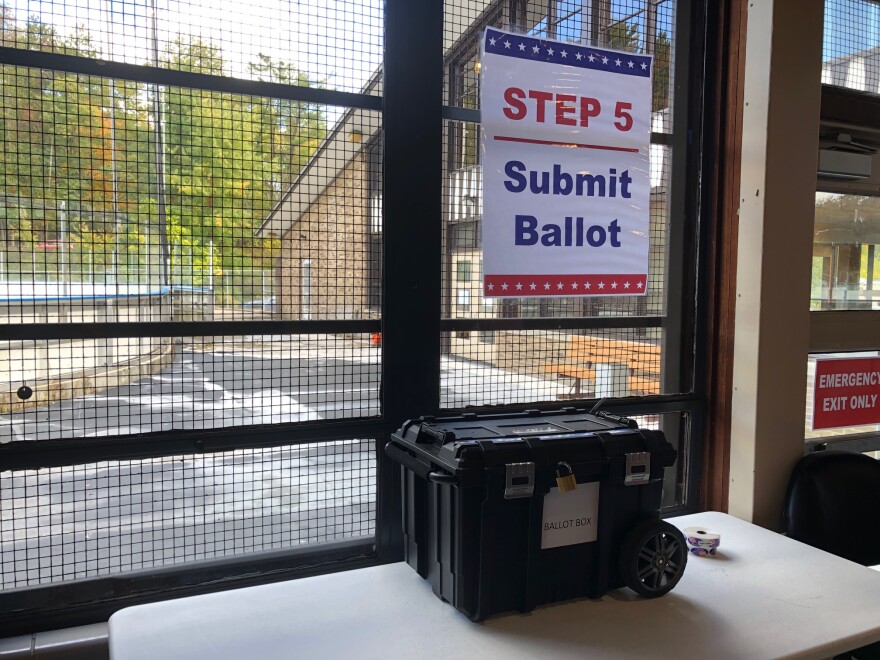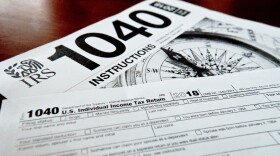This is usually the point in the election cycle where Allegheny County election watchers publicly worry about finding enough people to work the county's 1,300 polling places this November. But judging from the upbeat tone at a roughly 45-minute meeting of the Allegheny County Board of Elections Wednesday, that hasn't been the story this year.
The county’s Administrative Services director, Jessica Garofolo, told the three-member board that the elections department is well on the way to recruiting the workers it needs.
"Right now we're working through a list of about 3,100 people that have expressed interest in working in November — which is awesome,” she said. “I think that's the most we've ever had at this point in time."
Those who have signed up to be poll workers can expect a written confirmation request via email or regular mail in the next few weeks: County workers have been figuring out polling place assignments and will need workers to confirm their intention to cover their posts on Election Day.
But the county is still recruiting people interested in helping to process voters at polling places – a job that involves a 15-hour day and pays $150 or more. Officials are reaching out to people who have worked polls in the past but not in recent cycles to see if they would like to return. But mindful that the Election Day workforce skews toward the elderly, the county also plans to reach out to college students as they return to area campuses in the weeks ahead.
“We're going to be doing some tabling events” at local schools, Garofolo said. “We're going to try to get maybe a younger generation involved in working at the polls."
The county is also increasing the staff available at its Election Day call center to address voter confusion or other problems.
Still, Board of Elections members did find something to argue about. Board member Bethany Hallam, who holds the position by virtue of her post as an at-large member of Allegheny County Council, renewed a long-standing call for satellite voting locations and drop-boxes in the lead-up to election day. The satellite locations, which were used in the 2020 Presidential election, allow a voter to request a mail-in ballot and fill it out in person, effectively voting early. Drop boxes allow voters to deposit their ballots for election workers to pick up in advance of voting.
“We set a really cool, awesome precedent in the 2020 election, and I would just really like to see that again,” Hallam said.
Garofolo told Hallam the county had no plans to do so.
County officials have long said satellite locations could be justified in the fall of 2020, when fear of the coronavirus was at its peak and many polling places were closed on Election Day itself. But that is no longer the case, and county officials have said the satellite centers are expensive to operate relative to the number of voters who use them.
Allegheny County Executive Rich Fitzgerald, who also serves on the Election Board, has similarly cautioned that drop boxes must be placed under video or other surveillance to ward against ballot-stuffing. In any case, he said Wednesday, the cost of gasoline needed to drive to a drop box location is likely larger than the price of a postage stamp.
“We do have drop boxes that are painted red, white and blue,” he said.
Another factor weighing against the use of drop boxes is staunch opposition from Republicans, whose legal challenges to voting procedures and baseless claims of voter fraud, have exacerbated uncertainty and distrust in the voting process.

The election board’s lone Republican, County Councilor Sam DeMarco, said he was “adamantly opposed” to drop boxes or satellite locations.
“Since 2020, we’ve taken an institution which is voting, which we’ve always had faith and trust in, and members of the public, for right or wrong, assume or believe that things aren’t as trustworthy as they once were.”
But DeMarco, who has eschewed conspiracy theories about the reliability of the count in Allegheny County, proposed an idea to shore up trust in the system: let citizens help count ballots on Election Night.
“If we recruit poll workers, I also get questions from people who would like to work in the warehouse” counting votes, DeMarco said. Vote-counting is done by county employees, but “I’d like to open it up to maybe at least 25 slots or something like that from the public. … I think that this would help build trust in our system.”
Hallam worried that having the general public participate might reduce voter faith — and control — over the process, even though vote-counting is kept under surveillance. Allan Opsitnick, the election board’s solicitor, said he would have to look into the legality of DeMarco’s approach.
The board will next meet on Sept. 20. The election itself is Nov. 8.





